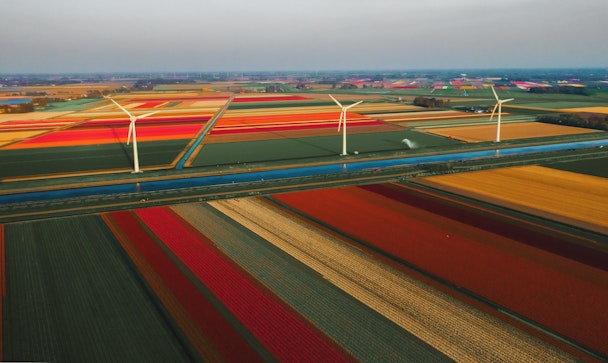Going Dutch: agency leaders from Amsterdam on their role rebuilding the world
The Drum Network is growing its chapter in Amsterdam. Network head Holly Hall and editor Sam Anderson sat down with Dutch Digital Design’s Bert Hagendoorn and agency leaders from the Venice of the north to talk about Dutch marketing’s role in a post-pandemic world and the current talent landscape.

Dutch agency leaders on the state of the industry in their country – and its future / redcharlie via Unsplash
The world has changed shape over the last 18 months. Among the changes wrought by the pandemic are a raft of alterations to the way workers and businesses negotiate the world’s geography. Workers are trading cities for the suburbs; businesses are rethinking their global supply chains; hybrid and networked working are enabling brands and agencies to talk seriously about “borderless creativity.” Amid all this change, many predict a geographical diversification in business, with those offering less localized teams and outlooks set to win big.
Amsterdam is hardly one of the plucky fringe players that commentators say can hope for a bigger bite of the pie in coming years; it’s an established hub for tech, innovation and advertising. But it just might be better-placed than other cities to reap the benefits of the business world’s new approach to globalization.
The new world, says Chris Adams of Hey Honey, is one where work will be won and done by “people who are right for the job, rather than just in the right place.”
It’s a world, for Kris Smith of AnalogFolk, that Amsterdam should be well-prepared for, thanks to its marrow-deep internationalism.
“Amsterdam has always had to look outward to be successful,” he says; diversified hiring and staffing trends are “kind of what Amsterdam’s been doing for decades.” And when it comes to winning work that may now be offered all over the world rather than simply locally, it can’t hurt that Dutch shops are used to working with budgets that would be sniffed at by colleagues in London or New York.
The talent landscape
As is so often the case, opportunities like this arrive intermingled with challenges: quite simply, the new globalization intensifies “the pressures of recruiting and retaining talent,” says Wesley ter Haar of Media.Monks. Not only is it harder to keep your best workers now that they can receive permanent offers from all over the world from the comfort of their homes, hybrid working undermines all of an agency’s traditional avenues to creating an excellent work and culture: vibrant IRL spaces, events and perks.
Those changes, say Tijmen Mulder of Robot Kittens, positively require agencies to “change our views on employees – it’s all about the growth of them individually.” That’s especially true for smaller shops, where no expense should be spared to keep real talent around in the long term – especially amid the Great Resignation.
Here changes accelerated by lockdowns meet long-gestating generational shifts in attitudes to work. Our roundtable experts agree: the cusp generation of younger millennials and older generation Z members currently filling up agency workforces are more focused than any before them on company vision and purpose.
“To retain talent is to have a very clear vision,” says Marten Beerda of Adventure Club. Having a genuine vision, a plan to fulfill it, and a way of including all staff in that fulfillment is essential.
“The reason why people are going to want to work with you is the work that you do. There’s no amount of free coffee or beers on Friday or croissants that you can offer folks ... it’s all about the work and what makes you different,” says Kris Smith of AnalogFolk. “Culture is defined by those who are in the building.”
This presents opportunities to radically rethink talent priorities. Agencies have long prioritized cultural fit; Emily Dickinson of Opinium says they’ve seen good results from flipping the script.
“We’ve been looking at how we recruit people who add value, rather than cultural fit,” she says. “That’s really changed who we are as an agency. It’s made it much more challenging and creative. My perceptions and assumptions are challenged daily ... It’s not always comfortable and it’s not always easy, but actually that’s kept people engaged and people have felt that they have an opportunity to change who we are as an agency and the work that we’re doing, rather than just trying to pigeonhole people.”
A kind of sustainability
What we’re talking about, in effect, is sustainability: building businesses with the future in mind; taking responsibility for how business decisions affect people and their lives. Responsibility is a hot topic at the moment, with brands talking more about ESG than ever. Although critics remain dubious about the depth of brands’ commitment, that signal itself is enough to make this a significant priority for agencies. One trend, says Suzanne Visser of Kaliber Interactive, will be toward “taking more and more ownership of what we’re doing and what we can do in the digital world.”
Here, again, growing commitments to purpose-led work may play an increasing role. For Ravi Amaratunga Hitchcock of Soursop, a question that will only grow in its ubiquity is, “what are the ethics of the client base you’re working for and what does that say about you?”

